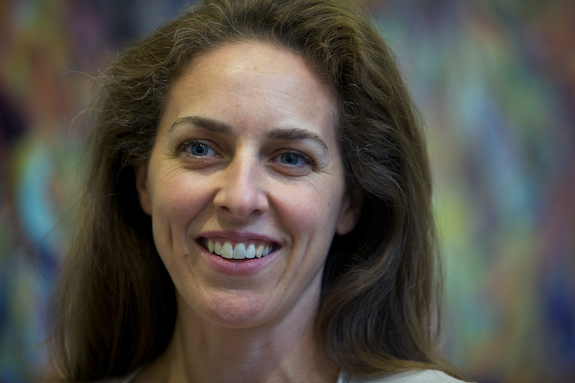 According to a forthcoming survey from Pew Internet Project, 7 in 10 American adults are self-trackers of some kind.
According to a forthcoming survey from Pew Internet Project, 7 in 10 American adults are self-trackers of some kind.
Sixty percent of Americans are tracking weight, diet, or exercise, said Associate Director of Digital Strategy Susannah Fox, who previewed some results from the survey at the Connected Health Symposium in Boston last week. One third track health indicators or symptoms, and one third are tracking a health indicator for a loved one they care for. Altogether that adds up to 7 out of 10 doing some kind of self-tracking, but only about a fifth are using technology like mobile devices, and half of self-trackers are only tracking "in their heads." Fox illustrated this with the idea of the "skinny jeans tracker" — someone who is tracking their weight only by noticing when they can't fit into a certain pair of pants. The numbers for health app adoption are expected when the full survey is published next week, but last year's report showed no growth.
Smartphones are becoming ubiquitous in the lives of the people who use them, so they offer the potential to turn head-trackers into real trackers, recording more complete data that can help them better manage their health. The goal guiding app developers, Fox says, should be to make tracking health on your phone as easy as tracking it in your head.
Tracking is useful for anyone managing their fitness, weight or sleep patterns. For people with chronic diseases like diabetes, though, it can be essential, and having those records can drastically improve care. Right now, according to the study 62 percent of adults living with two or more chronic conditions is self-tracking.
The survey showed that of those who track their health, two-thirds don’t share that data with anyone. (Of the other third, half share with a clinician and the other half with family or friends.) This could help inform app design, Fox suggested. Just as people will ask Google embarrassing questions they'd never ask their doctor, she pointed out, apps have the potential to offer confidentiality and intimacy that even a doctor can’t.
Finally, Fox shared some numbers that demonstrate the impact self-tracking is having on people’s health care. The survey showed that among self trackers, 34 percent say the practice affected a health decision, 40 percent say it led them to ask their doctor a new question or seek a second opinion, and 46 percent said it changed their overall approach to health.
You can read Fox's whole speech here.


















